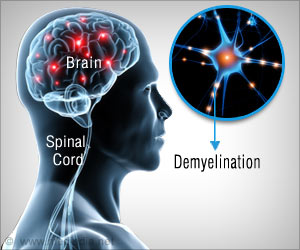
‘Signs and symptoms of MS vary widely and depend on the amount of nerve damage and which nerves are affected. There's no cure for multiple sclerosis. However, treatments can help speed recovery from attacks, modify the course of the disease and manage symptoms.’
Tweet it Now
At first, when the genetically modified mice were put in a sterile, germ-free environment, they did not develop MS. When exposed to a normal environment that would normally contain bacteria, the mice did develop MS-like disease and inflammation in their bowels, suggesting gut bacteria is a risk factor that triggers MS disease development. The study showed a link between gut bacteria and MS-like disease incidence, which was more prominent at a younger age, when MS is also more prevalent. The younger mice were more prone to develop MS than the older mice. Together, age, gut bacteria, and MS-risk genes collaboratively seem to trigger disease. This study is also the first to identify mechanisms by which gut bacteria triggers changes in the immune system that underlie MS progression.
"The findings could have therapeutic implications on slowing down MS progression by manipulating gut bacteria," says Suhayl Dhib-Jalbut, Director of Rutgers-Robert Wood Johnson Center for Multiple Sclerosis. Future research could lead to the elimination of harmful types of gut bacteria that wereshown to cause MS progression, or conversely enhance beneficial bacteria that protects from disease progression. The investigators recently received NIH funding to examine their findings in MS patients.
Source-Eurekalert















